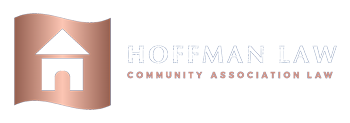
Are Your Community Association Attorneys Using AI to Perform Legal Services for You? Hoffman Law LLC is Not (well, at least not yet) … and … Here is Why.
August 25, 2024
Artificial Intelligence, or AI, has seemingly become an everyday term these days. People are using AI to write resumes, create rough drafts of stories based on variables that the end-user inputs, and also perform all types of tasks for personal and professional use … and … it’s evolving (quickly!). But, as I learned from an awesome acronym from my computer programming (go Basic, Fortran and Pascal!) classes way back in the stone age … GIGO. Wait, GIGO? What does this mean? Quite simply: “garbage in, garbage out“.
In the context of AI utilized in the provision of legal services, it means that the information and data that AI is gathering and aggregating from the internet for attorneys to use in real-world (i.e., not “AI-world”) court filings is oftentimes replete with utter and absolute garbage – including but not limited to absolutely incorrect legal analyses and [caselaw] summaries and citations, and other big “no-nos” for attorneys – which, as you may have already guessed, is a massive problem not just for attorneys and their law firms, but also for the clients of these lawyers and law firms.
About a week ago, on August 19, 2024, the Honorable Karoline Mehalchick, a United States District Judge for the Middle District of Pennsylvania, issued a Civil Practice Order entitled “Use of Generative Artificial Intelligence”, which provides as follows:
Increased use of Artificial Intelligence (“AI”), particularly Generative AI(including, but not limited to, OpenAI’s ChatGPT or Google’s Bard), in the practice of law raises a number of practical concerns for the Court, including the risk that the generative AI tool might generate legally or factually incorrect information, or that it might create unsupported or nonexistent legal citations. As such, any party, whether appearing pro se or through counsel, who utilizes any generative AI tool in the preparation of any document to be filed in any matter pending before Judge Mehalchick, must include with the document a Certificate of Use of Generative AI in which the party must disclose and certify:
- The specific AI tool that was used;
- The portions of the filing prepared by the AI program; and
- That a person has checked the accuracy of any portion of the document generated by AI, including all citations and legal authority.
Failure to comply with this Order may result in sanctions. Further, all parties and counsel are directed to review the conclusions on pages 15 and 16 of the Joint Formal Opinion of the Pennsylvania Bar Association and Philadelphia Bar Association regarding the use of Artificial Intelligence and be mindful of their ethical and professional obligations before this Court. (A link to the information provided in the Order can be found here. Contact us if you would like a courtesy copy of the actual Civil Practice Order Issued by the Court).
What exactly does this mean? It means that if your Association’s attorneys/law firms are representing your Association in a matter in front of Judge Mehalchick, they must certify that AI was used (and which type(s)), identify which portions of the filling are prepared by AI, and that someone (a real live person – go figure!) checked the accuracy of any portion of the filing prepared by AI, including all citations and legal authority. A failure to do so may result in sanctions.
While this Civil Practice Order only applies to matters in front of Judge Mehalchick in the [federal] District Court for the Middle District of Pennsylvania, Community Association attorneys, and their clients, throughout all of Pennsylvania, as well as virtually (no pun intended) in every other jurisdiction in this country, should understand that all of this is coming to a courthouse near you … and soon. Judges do not want to deal with GIGO filings in their courtrooms, so attorneys and law firms should take heed of the risks associated with the use of AI in legal practice – NOW.
Finally, for my fellow Pennsylvania Community Association attorneys, it is highly recommended that you listen to Judge Mehalchick and review pages 15 and 16 of the Joint Formal Opinion of the Pennsylvania Bar Association and Philadelphia Bar Association regarding the use of Artificial Intelligence before you engage in the use of AI in Pennsylvania.
– Edward Hoffman, Jr., Esq., CCAL
